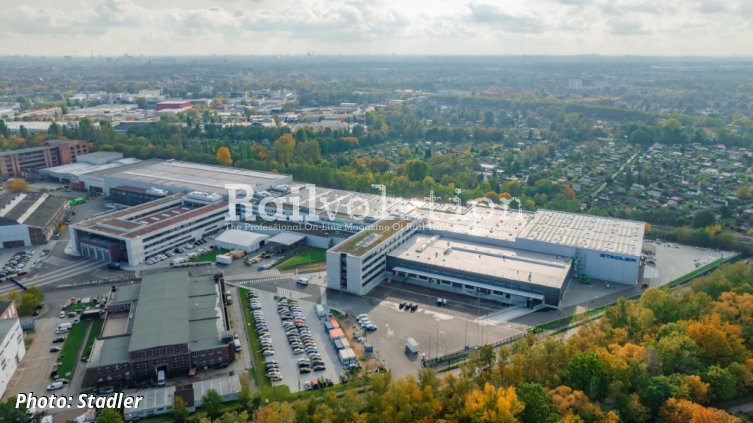Future of the Stadler plant in Berlin secured
posted on 18th Apr 2025 07:10
Management, employee representatives and IG Metall have agreed on a collective labour agreement for the future of the Berlin plant of train manufacturer Stadler. The parties announced this on 11 April 2025. "I would like to thank our employees, the works council and IG Metall for the constructive discussions over the last few weeks. Together, we have managed to secure the future of the site and the jobs for the coming years," said Jure Mikolčić, CEO of Stadler's Germany division.
On Wednesday afternoon, 9 April, IG Metall and the management of Stadler Germany reached a result in the collective bargaining negotiations for a collective agreement for the future. On 10 April, IG Metall members at Stadler approved the outcome of the negotiations. Jan Otto, First Authorised Representative of IG Metall Berlin, said: "There is now a future for Stadler and its employees in Berlin. The location guarantee until 2032 is a clear sign of Stadler's long-term prospects in Berlin. I would like to thank all my colleagues at Stadler who have taken a clear position over the weeks and whose commitment has made a significant contribution to the success of the negotiations."
The key points of the negotiation result are as follows:
- Location guarantee until 2032,
- Job security, which initially secures the majority of jobs until 31 March 2029,
- Gradual harmonisation of remuneration with the collective agreement from 2028/2029,
- No interference with basic pay, no wage waiver,
- Temporary increase in weekly working hours to 40 hours without wage equalisation.
Jan Otto adds: "I am convinced that Stadler will need more skilled workers in the coming years. There will be changes for employees in the first three years, such as a slight increase in working hours."
Despite a good order situation and high capacity utilisation, the Stadler plant in Berlin had run into economic difficulties, caused among other things by the consequences of the coronavirus pandemic, Russia's war of aggression in Ukraine and the resulting significant rise in energy and raw material prices. As a result, Stadler announced at the end of February that it would have to make operating processes more efficient and also ask its employees to make a contribution in order to make the sites strong for the tough international competition.
"I am aware that these measures will demand a lot from our employees," said Mikolčić. At the same time, however, he was relieved that the negotiations had prevented drastic measures such as a partial closure or nominal wage cuts. "I would like to express my sincere thanks to our employees for supporting these difficult decisions. Their understanding and willingness to contribute to securing Stadler in Berlin is by no means a matter of course."
Regarding the future of the plant, he said: "We have taken joint measures to position our sites sustainably for increasing international competition. This also means that we can continue to invest in research and development, because Stadler's trademark is innovative trains with climate-friendly drives that are tailored to the needs of our customers." Mikolčić also emphasised that work is continuing at full speed, for example on the delivery of the new underground trains for the Berlin Transport Company (BVG) planned for late summer.

